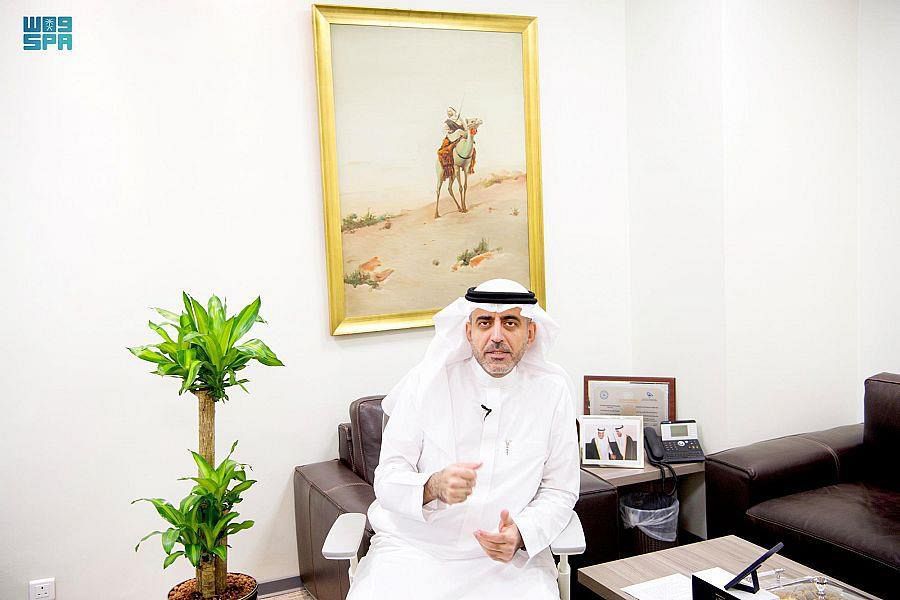
The year 2020 exposed the futility of attempting to make economic predictions. When world leaders, global CEOs, investors, international experts, thinkers, bankers, businessmen and policymakers gathered under the sunny Riyadh sky in late October 2019 for the third edition of the Future Investment Initiative (FII), no one could predict that a small strand of replicating protein would bring the activities of the most successful species on the planet to a near standstill for the better part of the next 12 months.
Fast forward 14 months, the FII Institute will host the fourth edition of the FII this week, a multi-hub conference held under the appropriate theme of “The Neo-Renaissance,” which will once again engage global decision-makers as they tackle some of the most pressing issues of our time.
I love the saying “If you want to predict the future, create it.” This week’s FII will do precisely that by engaging leaders as they reimagine the post-pandemic global economy. The international event will be held in Riyadh with speakers joining physically and virtually from FII satellites in New York, Paris, Beijing and Mumbai, and I am delighted to be moderating the panel “Digital currency: How the pandemic is driving innovations in finance.” The panel will feature Bob Diamond, founding partner and CEO of Atlas Merchant Capital; Steve Jacobs, managing partner and chairman of Banco BTG Pactual; Vijay Shekhar Sharma, founder and CEO of Paytm; and Tayo Oviosu, founder and CEO at Paga.
As we begin the decade that will lead to Saudi Arabia’s Vision 2030 goals, 2021 is a hugely relevant time to be talking about financial technology (FinTech) and innovation in Saudi Arabia and in the broader Gulf Cooperation Council (GCC).
FinTech innovation, startups and a knowledge-based economy will play a key role in Crown Prince Mohammed Bin Salman’s vision to transform the economy away from its traditional oil-based structure and rebalance it into a more technology-driven, modern global superpower. This is a crucial step forward for a country that has an estimated 2.2 million young people aged between 15 and 19 who will be entering the job market over the next decade and a huge opportunity for the Kingdom’s nearly 20 million young men and women under the age of 35.
I very much look forward to engaging my guest panelists as we discuss how the pandemic and the economic slowdown have impacted the FinTech industry, how innovation in FinTech has helped advance economic resilience within financial firms as well as for consumers, and how Big Tech firms such as Alphabet, Apple, Facebook and Amazon are approaching investments into FinTech and how this will impact the future of the sector.
My guest panelists joining from the US, UK, India and Nigeria will bring unique insight as they discuss the trends in finance and banking that they have seen accelerated in their region over the past 12 months, while I will attempt to place these trends into the context of those witnessed in the GCC and in Saudi Arabia.
As we begin the decade that will lead to Saudi Arabia’s Vision 2030 goals, 2021 is a hugely relevant time to be talking about financial technology (FinTech) and innovation in Saudi Arabia and in the broader Gulf Cooperation Council (GCC).
Roxana Mohammadian-Molina
I expect that collaboration and integration will take center stage in our conversation as we explore examples of successful partnerships between legacy financial institutions and FinTech startups as a result of the pandemic, something that has key relevance for the GCC and particularly for Saudi Arabia.
I have been very vocal about how Saudi Arabia could be on the brink of a FinTech revolution as it boasts a young, tech-savvy population and offers a source of business and a ready talent pool for FinTech firms. This potential has been further enhanced by high-level regulatory support for the FinTech sector, such as the approval by Saudi Arabia’s Capital Market Authority of the Financial Technology Experimental Permit to increase innovation in the domestic economy and send a clear message about the government’s intent to support FinTech innovation in the Kingdom.
Peer-to-peer (P2P) lending has become a growing and increasingly relevant area in FinTech due to its significant potential in channeling retail and institutional funding into projects such as property development, infrastructure, and even startups and small and medium-sized companies. So, I look forward to hearing from my guest panelists as to whether they have seen increased collaboration between traditional lending institutions and P2P lending platforms in their regions.
Once again, vision and high-level regulatory support have been evident in Saudi Arabia in recent years with initiatives such as the creation of a regulatory framework for the adoption of innovative technology in Saudi capital markets and the Saudi Arabian Monetary Authority’s sandbox approach. The latter allows new products and technologies to be tested under the regulator’s auspices to limit risks and is intended to allow applicants to develop FinTech products, services and business models, and to test and deploy them within specified parameters and time frames.
To conclude, and as we look into the next 10 years that will lead to Saudi Arabia’s 2030 goals, I will be inviting my guests to envision how the trends we have seen over the past 12 months in finance and banking will impact the future of FinTech, in their regions and also globally. I will be asking my guests whether they think we will continue to see more integration and collaboration between established financial institutions and FinTech firms at a time when many governments have realized that these firms, such as P2P lending platforms, can be very strong allies in deploying funds into projects large and small. I will be asking my guest panelists whether they think we will see more regulatory support for P2P lenders and more integration between traditional lenders and P2P lenders.
As we look ahead, the Public Investment Fund’s (PIF) ability to deeply embed GreenTech, CleanTech and HealthTech into its agenda will ensure that it consolidates its position as the world’s first activist and futurist sovereign wealth fund. Failure to do so will leave the door open for other players in this highly competitive market, such as Amazon’s recently launched $2 billion Climate Pledge Fund that was created to invest in entrepreneurs and innovators who are helping companies reduce their carbon footprint.
Over the next decade, the PIF has an opportunity to lead the way on a sustainable recovery path, which is not only desirable but also more efficient in creating jobs and delivering financial returns by prioritizing investments in nature-based solutions and by shaping the culture of change. As the pandemic has exposed both the risks and costs of neglecting our natural environment and our planet, the PIF has a rare opportunity to lead this shift in the conversation.
Roxana Mohammadian-Molina is chief strategy officer and a board member at London-based FinTech company Blend Network. A former banker at Morgan Stanley and Barclays in London, she now focuses on investing in, growing and advising tech companies, as well as advising governments on their financial innovation and FinTech strategy.
Disclaimer: Views expressed by writers in this section are their own and do not necessarily reflect Arab News" point-of-view










